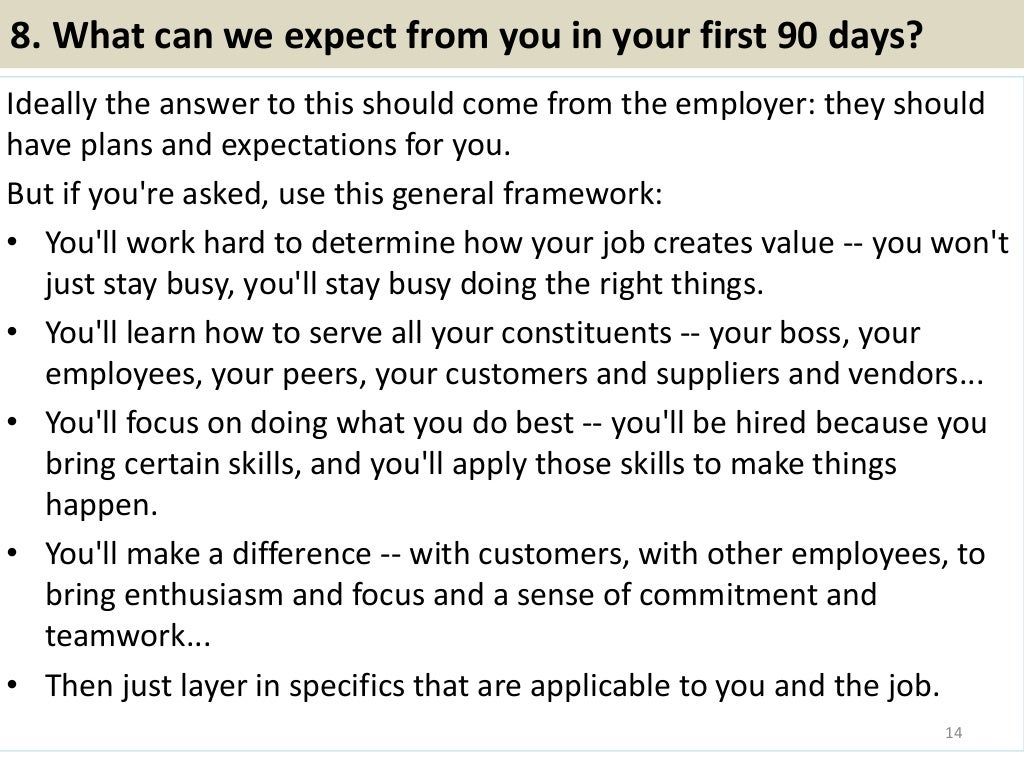You’ve meticulously crafted your scholarship application, highlighting your academic achievements, extracurricular involvement, and passion for your field. Now comes the final hurdle: the interview. This crucial step can be a nerve-wracking experience, but it’s also an opportunity to shine and make a lasting impression on the scholarship committee. A well-prepared interview, equipped with a strong understanding of common questions and insightful answers, can significantly elevate your chances of securing the funding you need to pursue your dreams.

Image: www.slideshare.net
To help you conquer the scholarship interview process, we’ve compiled a comprehensive guide filled with common questions, insightful answers, and practical tips. This guide serves as your ultimate resource, offering a downloadable PDF that you can refer to throughout your preparation. By understanding the types of questions you may encounter and crafting compelling responses, you’ll feel empowered and confident during your interview, showcasing your true potential to the scholarship committee.
Understanding the Scholarship Interview
The scholarship interview serves as a platform for the committee to delve deeper into your application, assess your personality, and evaluate your suitability for the scholarship. It’s not just about reciting your resume; it’s about demonstrating your character, communication skills, and passion for the chosen field.
Types of Scholarship Interviews:
- In-Person Interviews: These are typically held on campus or at a designated location. They allow for direct interaction and a more personal assessment.
- Video Conferencing Interviews: With advancements in technology, video interviews have become increasingly common, enabling remote participation. Platforms like Zoom or Skype facilitate live interactions.
- Phone Interviews: In some cases, scholarship committees may conduct phone interviews as a preliminary screening step.
Common Questions and Answers
The scholarship interview will likely encompass a range of questions that delve into your academic background, career aspirations, extracurricular activities, and personal experiences. While the specific questions may vary, here are some common topics to prepare for:

Image: www.scholarshipworld.uk
1. Tell Me About Yourself
This seemingly simple question is a great opportunity to showcase your unique personality and highlight your key qualities. Here’s a framework you can use:
- Start with a Hook: Begin with a brief anecdote or statement that grabs the committee’s attention. For example, you could mention a defining experience or a specific interest that sparked your passion for your chosen field.
- Highlight Relevant Skills and Experiences: Relate your background, academic achievements, and extracurricular activities to the scholarship criteria. Be specific and demonstrate how your experiences have shaped your values and goals.
- Connect to Future Aspirations: Briefly discuss your future aspirations and how the scholarship will play a significant role in helping you achieve them.
- End with a Call to Action: Briefly reiterate your commitment to the scholarship and express your enthusiasm for the opportunity.
2. Why Are You Interested in This Scholarship?
This question evaluates your understanding of the scholarship and your genuine interest in receiving it. Here’s how to craft a compelling answer:
- Research the Scholarship: Before the interview, thoroughly research the scholarship’s purpose, values, and focus areas. This will allow you to tailor your response to align with their mission.
- Connect Personal Goals with Scholarship: Explain how the scholarship’s objective aligns with your academic or career goals. For example, if the scholarship supports research in a specific field, emphasize how your academic interests align with that focus.
- Highlight Benefits: Describe how receiving the scholarship would benefit you academically, financially, or professionally.
3. What Are Your Strengths and Weaknesses?
This classic question tests your self-awareness and ability to reflect on your strengths and weaknesses. Here’s a strategy for tackling this question:
- Focus on Relevant Strengths: Choose strengths that align with the scholarship criteria, such as leadership, teamwork, analytical skills, or research experience. Provide concrete examples to illustrate your points.
- Present a Weakness as an Area of Growth: Select a genuine weakness and focus on how you’re actively working to improve it. For example, you might mention a weakness in public speaking and explain how you’re taking public speaking classes to enhance your communication skills.
4. What Are Your Academic Goals?
This question helps the committee understand your academic ambitions and how the scholarship aligns with your future plans. Here’s how to approach this question:
- Define Your Academic Objectives: Outline your short-term and long-term academic goals. For example, you might mention specific courses, research projects, or academic honors you aspire to achieve.
- Connect to Career Aspirations: Explain how your academic pursuits connect to your chosen career path.
- Highlight the Scholarship’s Role: Emphasize how the scholarship will help you achieve your academic goals and contribute to your career aspirations.
5. What Are Your Career Aspirations?
Scholarship committees are interested in knowing your future career path and how the scholarship will contribute to your professional journey. Here’s how to address this question:
- Articulate Your Career Goals: Clearly state your long-term career aspirations. Be specific and mention the type of industry, role, or organization you aspire to work in.
- Connect to Your Academic Interests: Explain how your academic background and interests align with your chosen career field.
- Highlight the Scholarship’s Value: Explain how the scholarship will support your career aspirations by providing financial assistance, enhancing your skills, or opening doors to valuable opportunities.
6. What Are Your Extracurricular Activities and How Have They Shaped You?
Scholarship committees often seek candidates who are well-rounded individuals with diverse experiences. Here’s how to approach this question:
- Showcase Relevant Activities: Highlight extracurricular activities that demonstrate your leadership, teamwork, communication, or other skills.
- Describe Your Role and Impact: For each activity, describe your role, responsibilities, and the positive impact you made.
- Connect to Your Growth: Explain how these activities have contributed to your personal and professional development. For instance, you could mention skills you’ve acquired, values you’ve cultivated, or lessons you learned.
7. How Do You Handle Stress and Pressure?
This question assesses your resilience and ability to manage challenges. Here’s how to respond:
- Be Honest and Authentic: Share your coping strategies for dealing with stress and pressure.
- Provide Concrete Examples: Back up your claims with specific examples of how you navigated challenging situations effectively.
- Demonstrate Adaptability: Highlight your ability to adapt to pressure and remain calm under challenging circumstances.
8. What Are Your Biggest Challenges in Life and How Did You Overcome Them?
This question is designed to assess your character, resilience, and problem-solving abilities. Here’s how to answer this question effectively:
- Choose a Meaningful Challenge: Select a challenge that reflects your personal growth or resilience.
- Describe the Challenge in Detail: Explain the nature of the challenge, the circumstances that led to it, and the impact it had on you.
- Highlight Your Approach and Outcomes: Describe the steps you took to overcome the challenge, the strategies you used, and the lessons you learned. Focus on the positive outcomes and how those experiences shaped you.
9. What Are Your Interests Outside of Academics?
This question aims to learn about your well-roundedness and personal pursuits. Here’s how to tackle this question:
- Highlight Your Passions: Share your hobbies and interests outside academic pursuits. This could include sports, music, art, travel, or volunteer work.
- Show Your Personality: Let your personality shine through. This is a chance to reveal your unique interests and hobbies that make you who you are.
- Connect to Your Growth: Explain how your non-academic pursuits have contributed to your personal growth, problem-solving skills, or other valuable qualities.
10. What Do You Read for Pleasure?
This question provides insight into your intellectual curiosity and cultural interests. Here’s how to address this question:
- Mention Relevant Books or Publications: Share books, articles, or publications that align with your academic interests or your personal passions.
- Explain Your Reading Choices: Briefly discuss why you enjoy these books or publications and how they spark your interest or inspire you.
11. Do You Have Any Questions for Us?
This is an opportunity to demonstrate your interest and engagement. Here’s how to make the most of this question:
- Prepare Thoughtful Questions: Before the interview, carefully consider questions about the scholarship, the organization, or the chosen field.
- Show Genuine Interest: Frame your questions in a way that demonstrates your genuine interest and your desire to learn more.
- Avoid Asking Questions That Could Be Found Online: Focus on questions that require specific knowledge or insights that couldn’t be readily found through online research.
Additional Tips for Success
Beyond preparing for specific questions, here are some additional tips to help you ace your scholarship interview:
- Dress Professionally: Even if the interview is conducted remotely, dressing professionally can boost your confidence and make a positive impression.
- Practice Your Responses: Rehearse your answers aloud to ensure they flow smoothly and confidently.
- Arrive On Time: For in-person interviews, arrive 10-15 minutes early. For virtual interviews, log in a few minutes early to ensure everything is working properly.
- Maintain Eye Contact: For in-person interviews, maintain eye contact with the interviewers. During video interviews, look directly at the camera.
- Be Enthusiastic and Passionate: Let your passion for your chosen field shine through.
- Send a Thank-You Note: After the interview, send a brief thank-you note expressing your appreciation for the opportunity and reiterating your interest in the scholarship.
Resources
For further guidance and support in preparing for your scholarship interview, consider exploring these resources:
- University Career Centers: Most universities offer career services that provide interview preparation resources, including practice interviews.
- Online Interview Preparation Resources: Websites and online platforms offer numerous tips, practice questions, and mock interviews to help you prepare.
- Mentors and Advisors: Seek advice and feedback from mentors, professors, or career advisors who may have experience with scholarship interviews.
Scholarship Interview Questions And Answers Pdf
https://youtube.com/watch?v=n9eCXflVjbA
Conclusion
Acing your scholarship interview is a crucial step in securing the funding you need to pursue your educational goals. By understanding the common questions, preparing insightful answers, and following the tips outlined in this guide, you’ll be well-equipped to showcase your strengths, communicate your passion, and demonstrate your suitability for the scholarship. Don’t forget to download the accompanying PDF for easy access to this valuable information. Best of luck with your scholarship interview, and may your dreams take flight!






